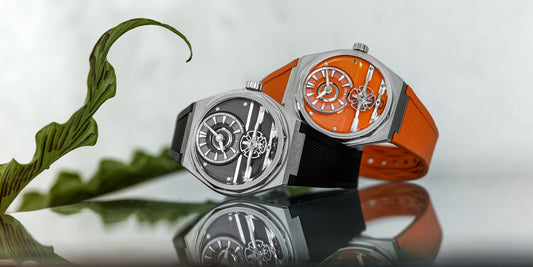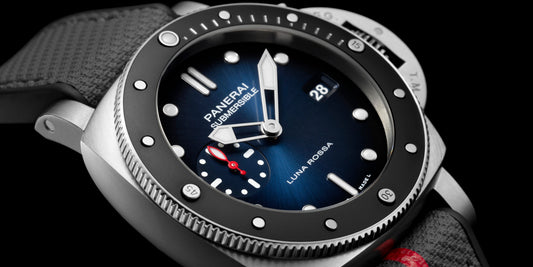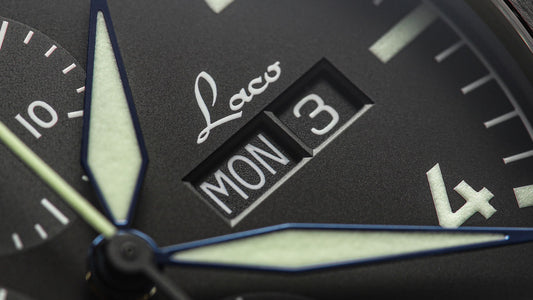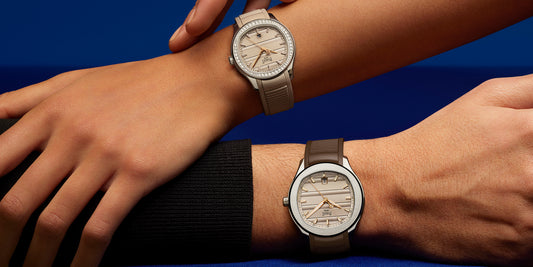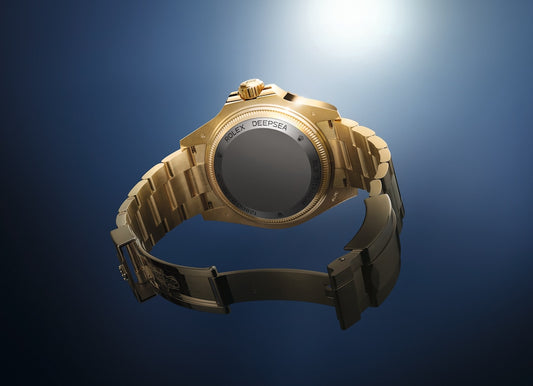If you are looking for a watch that is inspired by the golden age of NASA space missions, then you may be considering a Bulova Lunar Pilot or, if you have the budget, an Omega Speedmaster. These are the only two watches directly connected to missions. However, there is a new offering from the UK watch manufacturer Marloe which is unquestionably linked to the era but is a fundamentally different interpretation.
We have lift-off.

Marloe Astro - Credit WatchGecko
The 1960s space program offers us an embarrassment of riches when it comes to inspirational imagery and material. We are moved by JFK’s “ We choose to go to the Moon” speech, we are in awe of the mighty Saturn V rocket with 7 million pounds of thrust, and we still marvel at the sight, 50 years later, of Apollo astronauts walking on the Moon.
And where did we see these images?
On an old TV, most likely. A small box at the end of the room which brought us scratchy images of mankind’s greatest adventure. You may think this is an odd reference on which to base a Moonwatch, but when you think about it, the TV was a global common denominator we had in that era and was a technological marvel. To see man walk on the Moon live was, in the words of Apollo 17s Gene Cernan, science fiction.
Orbiting with the Astro

Marloe Astro - Credit WatchGecko
The Marloe Astro is a striking watch – maybe even divisive. When it was passed around the WatchGecko office, there was a predictable reaction from everyone who handled it. Not in any way negative, which Marloe will be pleased to know, more “gosh, that’s different.”
The case is a 38mm square with a 20mm strap which integrates deep into it. The overall effect is nothing like the shape of a modern smartwatch, more like you have strapped a piece of 1960s NASA kit onto your wrist.
And whether Marloe intended this or not, that is the principal effect this watch generates. It looks like a dial from within the Apollo capsule. Maybe the famous 8-Ball or an artificial horizon you would find in the cockpit.
The round dial itself is 31mm in diameter and has a good amount of real estate surrounding it, which on some models is heavily textured to add depth to the square shape. The dial has a very detailed minute track with both Roman or Arabic Numerals at the indices. With the Roman option, the 11 marker is highlighted in orange, perhaps as a homage to Apollo 11, and the surround has a honeycomb effect.
A solar system of Astros

Marloe Astro - Credit WatchGecko
Four striking colour options are available, each one paying respect to the genre via a space related name.
The Valentina features an off-white dial, with gold hardware, black printing and sky blue accents. The watch is named after Valentina Tereshkova who was the first woman to travel to space in 1963. She completed 48 Earth orbits and remains the only woman to have conducted a solo space mission.
The Eagle is very different with a black radial textured upper plateau and a vivid orange chapter ring. Marloe advise that the colour was inspired by the deep darkness of space.
 Marloe Astro - Credit WatchGecko
Marloe Astro - Credit WatchGecko
The Stellar brings us more up to date with an International Space Station-inspired theme. The blue honeycomb textured upper is a subtle reference to the pentagonal tunnel down which Dr. David Bowman walks in 2001: A Space Odyssey. The watch represents the future need for orbital science facilities and where these may take us in the future.
The white Futura brings us right up to date with a colour channeling the world of Space-X and Blue Origin reusable rockets. Machines that are setting a foundation for our return to the Moon.
Each Marloe Astro is powered by a 24-jewel Miyota 9039 automatic mechanical movement, which beats at 28,800 bph. The 9039 has hand-winding capability and a 40+ hour power reserve. Miyota claims an accuracy of -10 ~ + 30 sec/day and, in case your Lunar Module has a bumpy landing, the movement benefits from Parashock anti-shock technology.
And the best treat is that the movement is visible through a highly imaginative crystal display case back. The rear glass has an etched globe design with a tiny Apollo capsule orbiting a planet. It is a detailed and well-conceived design that does not overpower the glass and keeps the movement visible.
How does the Astro wear?
Remarkably good is the answer. The slightly rounded square is not so big that it dwarfs your wrist, and equally, it, in no way does the Astro resemble modern wearable technology square watches.
It is light and comfortable with a variety of strap choices from Marloe’s watch configurator. We would recommend the rubber or Velcro for a true outer space look.
 Marloe Astro - Credit WatchGecko
Marloe Astro - Credit WatchGecko
Marloe Astro Specifications
- Dimensions - 38mm x 38mm x 10.6mm depth
- Lug width - 20mm
- Case - Dual-finish bespoke design
- Lens - Sapphire crystal with dual side anti-reflective coating
- Dial - Multi-layer with applied indices / textural areas
- Hands - Chamfered, hairline running seconds hands
- Crown - Custom Soyuz capsule crown with etched motif
- Weight - 80g
- Water resistance - 10 ATM/100m
- Your choice of remaining serial numbers available
- Cost £369 direct from Marloe
What our readers think is of primary important to us at the WatchGecko Magazine. We work hard every day to produce quality and varied features, however it be really useful to know what you, our readers, actually think. To this end we have generated a very short survey which should only take five minutes to complete. We would be very grateful if you could take time to answer the questions as the results will be of huge interest to us and influence content for the rest of the year.
Thank you for your help.




